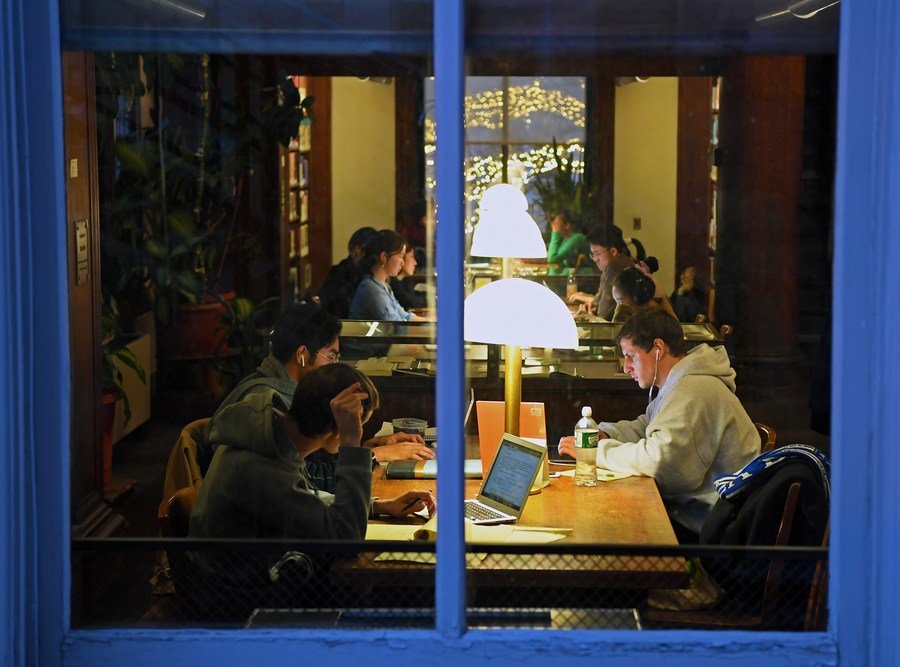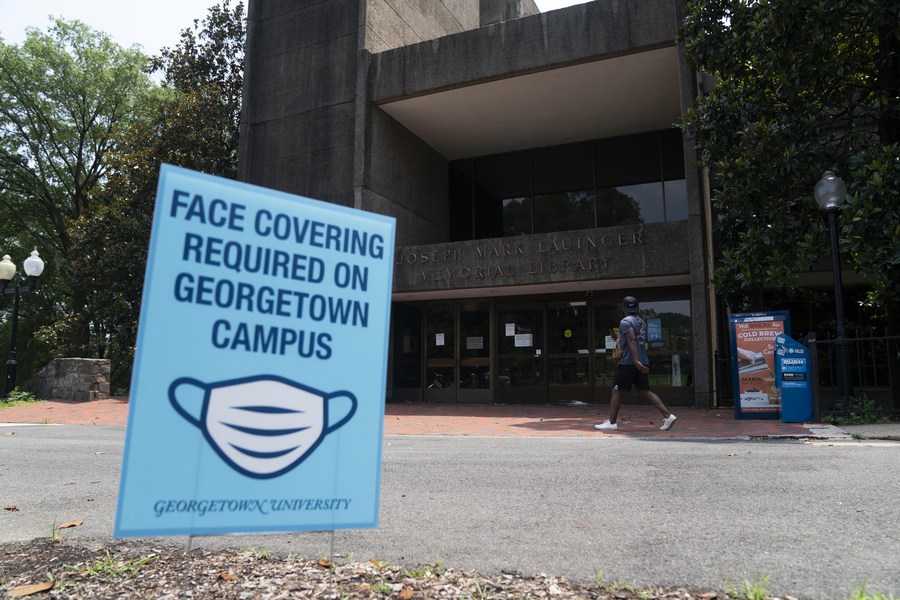Proposed US changes in international student visas: Wrong way to go
- By Eugene Clark
 0 Comment(s)
0 Comment(s) Print
Print E-mail China.org.cn, July 14, 2020
E-mail China.org.cn, July 14, 2020

Proposed changes to the American issuance of international student visas threaten to force thousands to leave the U.S. unless they are enrolled in a course or program that involves face-to-face, in person teaching.
If enacted, such a rule would result in serious financial losses and negatively impact the higher education sector, the American economy as a whole, and U.S. relations with other countries. It would leave many international students with unfulfilled career dreams and burdened with large debts.
Understandably, almost 200 U.S. colleges and universities are supporting legal action first initiated by Harvard and MIT in opposing the new rules. The attorney-general of some states, as well as international students themselves, have also filed lawsuits against the federal government.
This action by the U.S. Department of Homeland Security is in stark contrast to actions adopted by other countries, such as Australia, which is working closely with the education sector in devising strategies to support existing international students and offer future residence and work possibilities in Australia.
The American move is being applied even for those students now stranded overseas and only able to study online as a result of COVID-19 travel restrictions. Currently international students comprise almost 6% of all students enrolled at higher education institutions in the U.S.
Learning from the generosity of other countries, rather than rushing through one-sided, ill-thought out regulations, the Trump administration should be engaging with all stakeholders to examine the impact of the move on online education. In doing so, it is important for all sides to refrain from polarized "either-or" thinking which reduces the debate to "risk disease or depart" alternatives.
Indeed, such discussions hopefully will lead to the development of improved educational and economic models benefiting students, higher education institutions and the general economy.
If American universities are to retain their international standing as leading research institutions and the U.S. to continue to attract top talent, the former need to have flexibility to seek the cream of the crop on a global basis.

While governments need to consult and not be unduly influenced by election politics, educational institutions also need to guard against over-reaction and be more proactive in coming up with new models of facility and instructional design and learning community interaction that meet educational goals while providing enhanced protection to those who study in traditional face-to-face modes.
This includes, for example, a redesign of facilities to enable social distancing, promote hygiene and provide increased testing to identify those who are asymptomatic and track and isolate all those who have been exposed to COVID-19.
While higher education communities are generally younger and less vulnerable to the virus, protection also needs to be provided to elderly faculty members and administrators and those with medical conditions making them more vulnerable.
For both face-to-face and online teaching, new and improved technologies are being developed to enhance the degree of teacher and learner engagement, reduce costs and ensure, among other things, academic integrity of courses and assessment.
It is also hoped that science will shortly come to the rescue as we get closer to the development of a vaccine, and as herd-immunity increases and treatment modalities continue to improve and lower hospitalization and death rates.
Finally, it is also important at this time for all parties and the higher education community in all countries to re-emphasize the great value that international students bring to all countries.
International students are central to the academic mission of every university seeking to provide an education that prepares all students for success in a global economy and our currently inter-connected world.
As people learn from one another and develop lifelong friendships, peace, future economic growth, mutual respect and understanding are promoted and enhanced. As American writer Wendell Berry wrote: "Nobody can discover the world for somebody else. Only when we discover it for ourselves does it become common ground and a common bond and we cease to be alone."
Eugene Clark is a columnist with China.org.cn. For more information please visit:
http://www.china.org.cn/opinion/eugeneclark.htm
Opinion articles reflect the views of their authors only, not necessarily those of China.org.cn.
If you would like to contribute, please contact us at opinion@china.org.cn.






Go to Forum >>0 Comment(s)